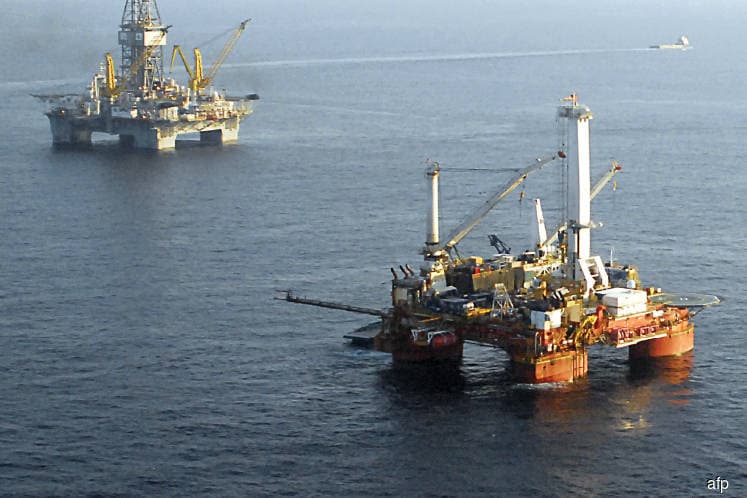
KUALA LUMPUR (July 26): The Federal government and the Sarawak state government should seek a “win-win” solution that will address the ownership issues of Sarawak’s oil and gas (O&G) resources, before the situation escalates out of control, according to a Sarawak State Assistant Minister.
In a Facebook post today, the Sarawak state government’s Assistant Minister for Law, State-Federal Relations and Project Monitoring, Sharifah Hasidah Sayeed Aman Ghazali, said a win-win solution should also be sought to redress the economic parity in the distribution and sharing of revenues derived from those resources within the ambit of the Malaysian context.
“This in the true spirit and intent of the Malaysia Agreement 1963,” Hasidah said.
Hasidah made reference to a statement by the Economic Affairs Minister Datuk Seri Mohamed Azmin Ali on Monday in Parliament that there will be huge implications to the financials of Petroliam Nasional Bhd (Petronas), if the proposed 20% oil royalty to the states is paid on gross value, instead of on net profit.
In her post, Hasidah called this a “presumptuous” assumption.
“It is presumptuous to assume that any remedy in the distribution of revenues between Sarawak and the Federal Government will have an adverse impact on any of the stakeholders, including Petronas, without firstly taking into consideration adjustments to the stakeholders’ contributions to the Federal Government in terms of existing Royalty, Profits, Taxes and Dividends, which effectively give the Federal Government 92% of all O&G-derived revenues, and Sarawak only 1%.
“An increase from 5% to 20% of the gross production will only mean 5% of total O&G revenues to Sarawak, with 88% still going to Petronas and the Federal Government. This is clearly inequitable,” Hasidah said.
In the run-up to the 14th general election (GE14), the current ruling coalition Pakatan Harapan made a promise in its election manifesto to raise oil royalty for all oil-producing states to 20%, from 5% currently.
In her post today, Hasidah commented that the Sarawak government further reminded the Federal Government on the need for sustainability and ‘robust economic multiplier’ effects of national O&G exploitation policies and strategies in relation to Sarawak.
“After 42 years of one-sided exploitation, Sarawak needs a holistic approach to redress imbalances of inequitable sharing and distribution and poor value creation for Sarawak.
“This requires adjustments to legal, policy and eco-system synergy, [in other words] more equitable participation amongst Federal and State level entities. Otherwise, the Federal Government’s so-called distributive justice will only be a meaningless catch-phrase,” she said.
Hasidah added that it was extremely disheartening to be informed that the Federal Government’s manifesto was devised based on the analysis of cost structures that was constrained by limitations of available O&G data, which she said was presumably from Petronas.
“Sarawak urges the Federal Government, through Petronas, to provide the relevant stakeholders with access to such data, in order to analyse and devise the equitable distribution of O&G revenue to its stakeholders,” she said.
Sarawak is not against sharing its O&G resources with the rest of the nation and has done so without complaint for the last 42 years since the formation of Petronas, Hasidah clarified.
However, she said the Federal Government must realise that Sarawak needs to develop its own ‘In-Country Value Creation Model’ and endeavour to apply it for a more generative formula to create healthier participation by Sarawak companies, so not all business opportunities are channelled to Malayan-based companies by way of huge “Umbrella Contracts” currently awarded by Petronas.
“Sarawak feels very strongly that the current Petronas model of federalising the economic perspective towards maximizing revenue collection for the Federal coffers, does not work.
“This approach has proven to impoverish the states with O&G resources and there has been no coherent masterplan in place, even until today, to ensure growth of a healthy state O&G sector,” she said.
Sarawak and the Sarawakian economic interests have been sidelined for too long, Hasidah said. The State is not solely to be blamed for this situation, with Petronas playing the role of an ‘exploiter’, rather than a sustaining ‘value-creator’, she added.
“It is sad to note that the recent moves by Petronas and now, the new Federal Government itself, hardly seems to indicate any different thinking or change to this stance.
“This is unacceptable. Sarawakians can no longer tolerate such economic inequity and imbalance, especially with Sarawak being the real owner of the O&G resources,” Hasidah explained.
Sarawak reiterates its ownership and regulatory rights over all O&G resources and activities in Sarawak effective July 1, 2018 as prescribed under the recently-passed Oil Mining (Amendment) Bill 2018, with an aim for Sarawak to assume full ownership, regulatory and licensing authority over its O&G resources, serving the best interests of Sarawak and its people, she stressed.
“While the above Bill came into effect on July 1, 2018, Sarawak is giving all stakeholders until end 2019 to comply with the new regulations.
“As such, Sarawak calls for all stakeholders to refrain from unilaterally dictating or exercising any ownership rights to [the state]’s O&G resources, including distribution of revenues, unless and otherwise prescribed under Sarawak’s Oil Mining Ordinance,” Hasidah said.
This includes the presumptions that any percentage of royalty or percentage of net profit for that matter, is equitable and enforceable in the current effort by the Federal Government to redress the allocation of revenue, which Hasidah said was ironically termed by Azmin Ali as ‘distributive justice’ specifically to Sarawak.
“Any terms of such agreement must be determined by and with the rightful owner of the O&G resources, which is Sarawak. Sarawak will not be dictated to by anyone, not even the Federal Government, with regards to Sarawak’s own O&G resource,” she added.